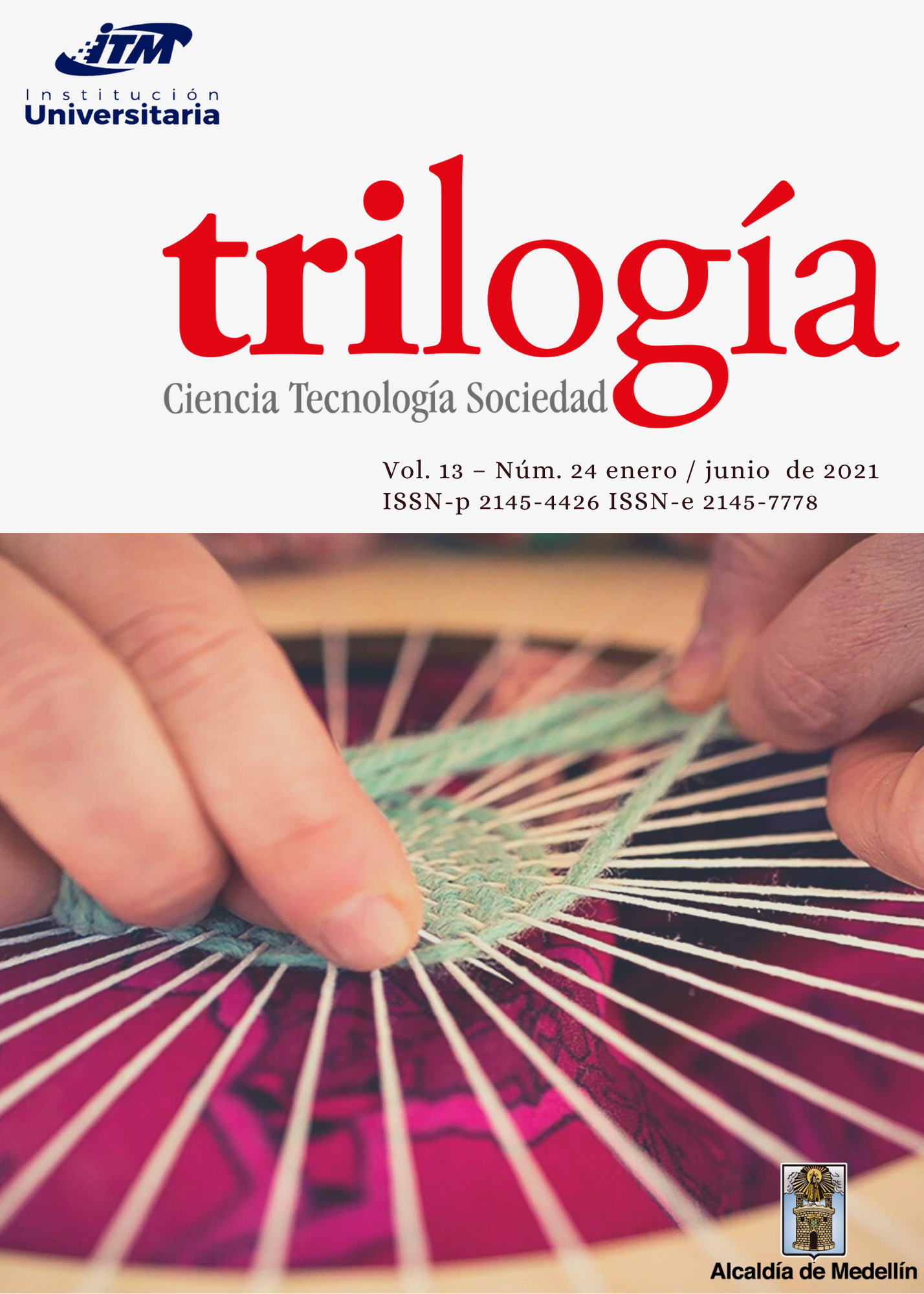Behavioral Correlates of Study Engagement in Chilean Engineering Students
Abstract
Research on Study Engagement gained strength in Higher Education due to its predictive value of student performance, abandonment and well-being. However, the explanatory models come from the occupational and school context without precise adaptations to the university context. The research objective sought to characterize the behavioral correlates of the Study Engagement from the experience of Chilean second-year engineering students to provide greater clarity on this construct. A qualitative investigation was carried out with a phenomenological approach and deliberate homogeneous sampling. Twelve students who previously measured their Engagement met the sampling criteria were interviewed. A Thematic Analysis was carried out that showed the existence of 3 categories of "engaged" behaviors: Planning, involvement and social bond. The main causes of Engagement were linked to vital priorities, goals and time organization. Coping focused on self-instruction, life motivations, and social support. The existence of a partial coherence between the students' experience, the conceptualization of the construct and previous empirical evidence is concluded. These findings may be relevant to better adjust the conceptualization according to the student experience. Its implications may also affect the construction of instruments and understanding of previous results.
References
Appleton, J. J.; Christenson, S. L.; Furlong, M. J. (2008). Student engagement with school: Critical conceptual and methodological issues of the construct. Psychology in the Schools, v. 45, n. 5, 369-386. https://doi.org/10.1002/pits.20303
Archambault, I.; Janosz, M.; Fallu, J. S.; Pagani, L. S. (2009). Student engagement and its relationship with early high school dropout. Journal of Adolescence, v. 32, n. 3, 651-670. https://doi.org/10.1016/j.adolescence.2008.06.007
Bruna, D.; Pérez, M. V.; Bustos, C.; Núñez, J. C. (2017). Propiedades Psicométricas del Inventario de Procesos de Autorregulación del Aprendizaje en Estudiantes Universitarios Chilenos. Revista Iberoamericana de Diagnóstico y Evaluación - e Avaliação Psicológica, v. 2, n. 44, 77-91. https://doi.org/10.21865/RIDEP44.2.07
Casuso-Holgado, M. J.; Cuesta-Vargas, A. I.; Moreno-Morales, N.; Labajos-Manzanares, M. T.; Barón-López, F. J.; Vega-Cuesta, M. (2013). The association between academic engagement and achievement in health sciences students. BMC Medical Education, v. 13, n. 33, 1–7. https://doi.org/10.1186/1472-6920-13-33
Chang, M. J.; Sharkness, J.; Hurtado, S.; Newman, C. B. (2014). What matters in college for retaining aspiring scientists and engineers from underrepresented racial groups. Journal of Research in Science Teaching, v. 51, n. 5, 555-580. https://doi.org/10.1002/tea.21146
Cox, D. W.; Bjornsen, A. L.; Krieshok, T. S.; Liu, Y. (2015). Occupational Engagement and Academic Major Satisfaction : Vocational Identity’s Mediating Role. The Career Development Quarterly, v. 64, n. 2, 169-180. https://doi.org/10.1002/cdq.12049
Díaz-Mujica, A.; García, D.; López, Y.; Maluenda, J.; Hernández, H.; Pérez-Villalobos, M. V. (2018). Mediación del ajuste académico entre variables cognitivo-motivacionales y la intención de abandono en primer año de universidad. En Octava Conferencia Latinoamericana sobre el ABandono en la Educación Superior, Panamá. https://revistas.utp.ac.pa/index.php/clabes/article/view/1934/2876
Deus Yela, J.; Hermoso, B.; Pujol, J. (2015). Neuroimagen en las demencias: correlatos cognitivos y conductuales. Informaciones Psiquiátricas, n. 220, 83-94.
Fredricks, J. A.; Blumenfeld, P. C.; Paris, A. H. (2004). School Engagement: Potential of the Concept, State of the Evidence. Review of Educational Research, v. 74, n. 1, 59-109. https://doi.org/10.3102/00346543074001059
Fredericks, J. A.; McColskey, W. (2012). The Measurement of Student Engagement: A Comparative Analysis of Various Methods and Student Self-report Instruments. En S. Christenson; A. Reschly; C. Wylie (editores), Handbook of Research on Student Engagement (pp. 763-782). https://doi.org/10.1007/978-1-4614-2018-7_37
Gómez H., P.; Pérez V., C.; Parra P., P.; Oritz M., L.; Matus B., O.; McColl C., P.; Torres, G.; Meyer K., A. (2015). Relación entre el bienestar y el rendimiento académico en alumnos de primer año de medicina. Revista Médica de Chile, v. 143, n. 7, 930-937. https://doi.org/10.4067/S0034-98872015000700015
Hu, S.; McCormick, A. C. (2012). An Engagement-Based Student Typology and Its Relationship to College Outcomes. Research in Higher Education, v. 53, n. 7, 738-754. https://doi.org/10.1007/s11162-012-9254-7
López-Angulo, Y.; Maluenda Albornoz, J.; Varas Contreras, M. (2019). Factores personales e institucionales vinculados con el compromiso académico en estudiantes universitarios chilenos de ingeniería. En Novena Conferencia Latinoamericana sobre el ABandono en la Educación Superior, Bogotá, Colombia. https://www.researchgate.net/publication/338459060_Factores_personales_e_institucionales_vinculados_con_el_compromiso_academico_en_estudiantes_universitarios_chilenos_de_ingenieria
Maluenda Albornoz, J.; Flores-Oyarzo, G.; Varas Contreras, M.; Díaz Mujica, A. (2020). Comportamientos interpersonales del docente asociados al compromiso académico de estudiantes de primer año de Ingeniería. Revista de Estudios y Experiencias en Educación, v. 19, n. 39, 145-161.
Maluenda Albornoz, J.; López Angulo, Y.; Bernardo Gutiérrez, A.; Díaz Mujica, A.; Moraga Villablanca, F. (2019a). Predictores psicosociales de la intención de abandono en estudiantes de ingeniería chilenos. En Novena Conferencia Latinoamericana sobre el ABandono en la Educación Superior, Bogotá, Colombia. https://revistas.utp.ac.pa/index.php/clabes/article/view/2633/3374
Maluenda Albornoz, J. I.; Moraga Villablanca, F.; Díaz Mujica, A. (2019b). El rol del estudiante en el fenómeno del Compromiso Académico en Educación Superior. Wimb Lu, v. 14, n. 1, 81-94. https://doi.org/10.15517/WL.V14I1.35876
Maroco, J.; Maroco, A. L.; Campos, J. A. D. B.; Fredricks, J. A. (2016). University student’s engagement: development of the University Student Engagement Inventory (USEI). Psicologia: Reflexão e Crítica, v. 29, n. 21, 1-12. https://doi.org/10.1186/s41155-016-0042-8
Masip, J.; Garrido, E.; Herrero, C. (2002). La deteccion del engaño sobre la base de sus correlatos conductuales: la precision de los juicios. Anuario de Psicología Jurídica, v. 12, n. 1, 37-55. https://journals.copmadrid.org/apj/archivos/80162.pdf
Parra P., P.; Pérez V., C. (2010). Propiedades psicométricas de la escala de compromiso académico, UWES-S (versión abreviada), en estudiantes de psicología. Revista de Educación en Ciencias de la Salud, v. 7, n. 2, 128-133.
Pérez Villalobos, M. V.; Cobo Rendón, R.; Matos Fernández, L.; Hernández, H.; Del Valle, M.; Díaz Mujica, A. (2017). Variables cognitivo-motivacionales como predictoras del ajuste a la vida universitaria y de la intención de abandonar estudios en estudiantes de primer año. Congreso CLABES VII, 1-6. https://revistas.utp.ac.pa/index.php/clabes/article/view/1663
Pineda-Báez, C.; Bermúdez-Aponte, J. J.; Rubiano-Bello, Á.; Pava-García, N.; Suárez-García, R.; Cruz-Becerra, F. (2014). Compromiso estudiantil y desempeño académico en el contexto universitario colombiano. RELIEVE. Revista ELectrónica de Investigación y EValuación Educativa, v. 20, n. 2, 1-20. https://doi.org/10.7203/relieve.20.2.4238
Real Academia Española. (2020). Diccionario de la lengua española. https://dle.rae.es
Salanova, M.; Schaufeli, W. B.; Llorens, S.; Peiro, J. M.; Grau, R. (2000). Desde el “burnout” al “engagement”: ¿una nueva perspectiva? Revista de Psicología del Trabajo y de las Organizaciones, v. 16, n. 2, 117-134. https://journals.copmadrid.org/jwop/art/7c590f01490190db0ed02a5070e20f01
Salanova, M.; Schaufeli, W.; Martínez, I.; Bresó, E. (2009). How obstacles and facilitators predict academic performance: the mediating role of study burnout and engagement. Anxiety, Stress, & Coping, v. 23, n. 1, 53-70. https://doi.org/10.1080/10615800802609965
Sánchez Aragón, R.; Sánchez Ruíz, A. L. (2009). Correlatos cognitivos, afectivos y conductuales de la tristeza, el enojo y el miedo. Revista Costarricense de Psicología, v. 28, n. 41-42, 41-57. https://www.redalyc.org/articulo.oa?id=476748706010
San Martín Cantero, D. (2014). Teoría fundamentada y Atlas.ti: recursos metodológicos para la investigación educativa. Revista Electrónica de Investigación Educativa, v. 16, n. 1, 104-122.
Schaufeli, W. B.; Bakker, A. B.; Salanova, M. (2006). The Measurement of Work Engagement With a Short Questionnaire: A Cross-National Study. Educational and Psychological Measurement, v. 66, n. 4, 701-716. https://doi.org/10.1177/0013164405282471
Schaufeli, W. B.; Martínez, I. M.; Marques Pinto, A.; Salanova, M.; Bakker, A. (2002a). Burnout and Engagement in University Students. A Cross-National Study. Journal of Cross-Cultural Psychology, v. 33, n. 5, 464-481. https://doi.org/10.1177/0022022102033005003
Schaufeli, W. B.; Salanova, M.; González-Romá, V.; Bakker, A. B. (2002b). The Measurement of Engagement and Burnout: A Two Sample Confirmatory Factor Analytic Approach. Journal of Happiness Studies, v. 3, n. 1, 71-92. https://doi.org/10.1023/A:1015630930326
Skinner, E.; Furrer, C.; Marchand, G.; Kindermann, T. (2008). Engagement and Disaffection in the Classroom: Part of a Larger Motivational Dynamic? Journal of Educational Psychology, v. 100, n. 4, 765-781. https://doi.org/10.1037/a0012840
Spormann R., C.; Pérez V., C.; Fasce H., E.; Ortega B., J.; Bastías V., N.; Bustamante D., C.; Ibáñez G., P. (2015). Predictores afectivos y académicos del aprendizaje autodirigido en estudiantes de medicina. Revista Médica de Chile, v. 143, n. 3, 374-382. https://doi.org/10.4067/S0034-98872015000300013
Strauss, A. L.; Corbin, J. (2002). Bases de la investigación cualitativa: técnicas y procedimientos para desarrollar la teoría fundada. Editorial Universidad de Antioquia.
van Uden, J. M.; Ritzen, H.; Pieters, J. M. (2013). I think i can engage my students. Teachers’ perceptions of student engagement and their beliefs about being a teacher. Teaching and Teacher Education, v. 32, 43-54. https://doi.org/10.1016/j.tate.2013.01.004
van Uden, J. M.; Ritzen, H.; Pieters, J. M. (2014). Engaging students: The role of teacher beliefs and interpersonal teacher behavior in fostering student engagement in vocational education. Teaching and Teacher Education, v. 37, 21-32. https://doi.org/10.1016/j.tate.2013.08.005
van Uden, J. M.; Ritzen, H.; Pieters, J. M. (2016). Enhancing student engagement in pre-vocational and vocational education: a learning history. Teachers and Teaching: Theory and Practice, v. 22, n. 8, 983-999. https://doi.org/10.1080/13540602.2016.1200545
Vergara, J.; Del Valle, M.; Cobo, R.; Pérez, M. V.; Díaz, A. (2016). Factores explicativos del abandono académico en estudiantes de pedagogía. Congreso CLABES VI, 1-11. https://revistas.utp.ac.pa/index.php/clabes/article/view/1345
Downloads
Copyright (c) 2021 Instituto Tecnológico Metropolitano

This work is licensed under a Creative Commons Attribution-NonCommercial-ShareAlike 4.0 International License.
Altmetric










